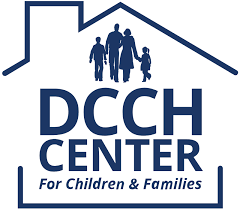It has been a reoccurring theme in recent years. In each legislative session, lawmakers take aim at the latest challenges posed by the state’s opioid epidemic. The ever-evolving nature of this crisis means that every time lawmakers meet there are emerging issues to consider as our state puts new laws on the books to keep drugs off the streets, support a strained criminal justice system, provide treatment to those who need it, and repair the damage caused to families and communities across the state.
This year, lawmakers are considering increased spending to target the opioid crisis. While the budget plan proposed by Gov. Matt Bevin would prompt cuts to many parts of government, it would provide a $34 million spending increase to fight the state’s opioid addiction epidemic. Members of the Kentucky House of Representatives are currently considering the entire spending plan.
In addition to addressing the drug crisis through the budget, lawmakers are also studying bills that would help keep drugs off the streets, improve treatment opportunities, and offer more drug-prevention education.
One of those measures took a step forward this week. House Bill 148 would help keep controlled substances like liquid morphine and fentanyl patches out of the hands of drug abusers by requiring the safe disposal of controlled substances by hospice providers or those providing palliative care or end-of-life service upon a patient’s death. The bill was approved by the House this week and has been delivered to the Senate for its consideration.

Bills on other issues that advanced this week include the following:
· House Bill 3 would require K-12 schools to incorporate basic workplace etiquette and skills into their curriculum beginning with the 2019-2020 school year. After being approved by the House Education Committee this week, it now goes to the full House for consideration.
· House Bill 128 would require public middle and high schools in Kentucky to teach students about the Holocaust. The bill now goes to the full House for consideration.
· House Bill 169 would crack down on the growing recruitment of criminal gang members in the state by making it a felony for adults to engage in criminal gang recruitment. Criminal gang recruitment by a minor would be a misdemeanor for a first offense but would rise to felony level for all other offenses under the bill. The bill was approved by the House Judiciary Committee and now goes to the full House for consideration.
· Senate Bill 38 would modify current statutes regarding pregnant and nursing women in the workforce. With modified job options, frequent breaks and a private space for breastfeeding in the workplace, the goal of SB 38 is to ensure fair treatment and equal opportunities on the job. With a 9-0 vote in the Senate Judiciary Committee this week, the bill now goes to the Senate floor for further consideration.
· Senate Bill 106 would create a limited license for beauty salons to provide only blow-drying and styling services. Currently in Kentucky, these types of businesses must obtain a full salon license and employ only trained cosmetologists. With hopes to reduce regulations and increase opportunities, the bill has passed the Senate and has been sent to the House for consideration.
· Senate Bill 91 would strengthen an existing law that requires Kentucky cities to have yearly audits by allowing the state to withhold money from a city that does not comply. Passing the Senate by a 37-0 vote, it now goes to the House for further consideration.
If you’d like to offer feedback to state lawmakers on issues under consideration, please call the General Assembly’s toll-free message line at 1-800-372-7181.

















